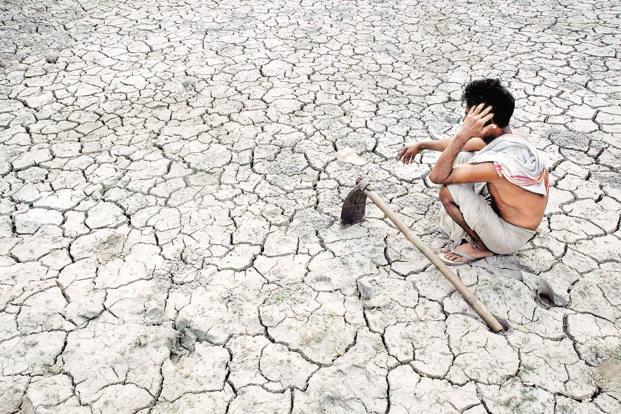
The cabinet chaired by Prime Minister Narendra Modi on Wednesday approved the extension of interest subsidy under the National Rural Livelihood Mission (NRLM) to 250 districts from the existing 150 for a focussed and targeted intervention in poverty reduction.
The move comes amid worsening rural distress in the second successive year of weak monsoon rains.
The cabinet also decided to grant flexibility in allocations earmarked for programmes for equipping rural youth with job skills, especially those from the poorer sections of society, a government statement said.
The government will use data from the Socio-Economic Caste Census (SECC) released in July to plan focussed poverty alleviation programmes, it said.
The NRLM was launched by the ministry of rural development in June 2011. Aided in part through investment support by the World Bank, it aims at creating efficient and effective institutional groups or bodies of the rural poor, enabling them to increase household income through sustainable livelihood enhancements and improved access to financial services.
On the extension of interest subvention to 100 more districts, the statement said these would be those new districts that were classed as Integrated Action Plan (IAP) districts—i.e. those affected by left-wing extremism and with a large poor population—which were not covered in an earlier list of 150 districts compiled two years ago.
Under the interest subvention programme, all women self-help groups can avail of loans up to Rs.3 lakh from banks at the lower interest rate of 7% a year as opposed to existing rates of 11 % and above. Those returning the loan within the stipulated time frame will get an additional subvention of 3%, bringing the effective rate of interest to 4%.
The government has approved the removal of an existing restriction that limits the allocation to skilling programmes for rural youth to 25% of NRLM allocation, the statement said.
This will enable the rural development ministry to “expand its focus to cover training courses of longer duration for placements (of rural youth) in foreign jobs, captive jobs, industry internships, training by accredited institutes and champion employers, and reskilling/upskilling of rural poor youth”.
Another decision taken by the cabinet was the “need-based financial allocation of Himayat programme in Jammu and Kashmir”. The Himayat programme was launched by the previous Congress-led United Progressive Alliance government to wean Kashmiri youth away from terrorism with an allocation of more than Rs.200 crore in 2013.
The Modi government decided to replace the existing cap of funds under the programme with “a demand-based allocation and target within the overall budget provision of NRLM” which would be funded entirely by the central government.
The cabinet also approved a Rs.1,006-crore rehabilitation package for the people affected by the exchange of enclaves between India and Bangladesh.
This includes Rs.898.50 crore as the fixed cost of strengthening and creation of infrastructure in Cooch Behar district and former Bangladesh enclaves in India.
Besides this, a variable cost of Rs.107.49 crore is likely to be incurred for the rehabilitation. The actual variable cost would depend on the actual number of families opting for India.
All the improvement of infrastructure is to be done by the West Bengal government or its agencies in a time-frame of three-five years and funds would be released by the Union home ministry to the state government as grant-in-aid, the release said.
The cabinet meeting on Wednesday also revised the cost estimates of five Indian Institutes of Science Education and Research (IISER) by almost double to Rs.4,799 crore. Following a recommendation from scientist C.N.R. Rao, the UPA regime had established these IISERs at Kolkata, Pune, Mohali, Bhopal and Thiruvananthapuram. These institutions are already operational from temporary campuses. The delay in construction and land acquisition had resulted in an escalation of cost.
The cabinet also approved signing and ratification of a protocol between India and Japan for amending the double taxation avoidance convention (DTAC) signed between the two countries in 1989. The bilateral protocol will facilitate exchange of information on tax matters, including bank information.